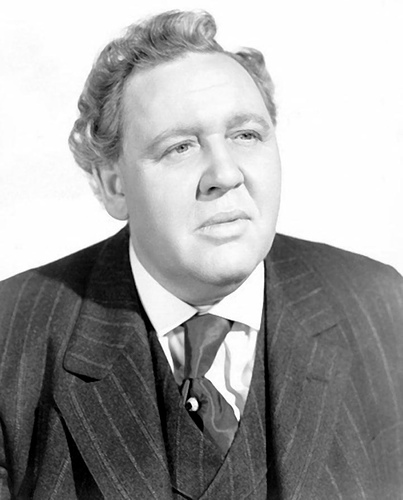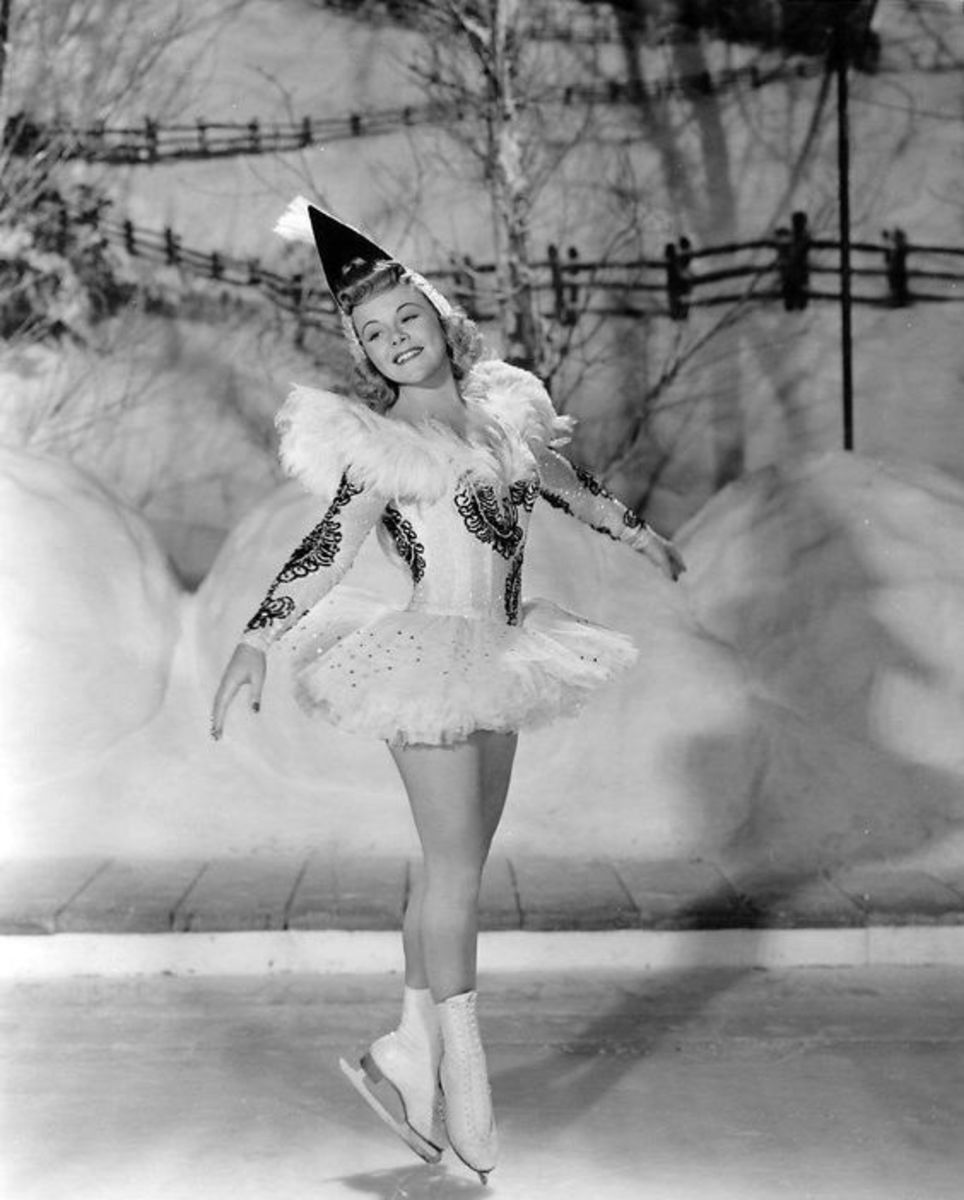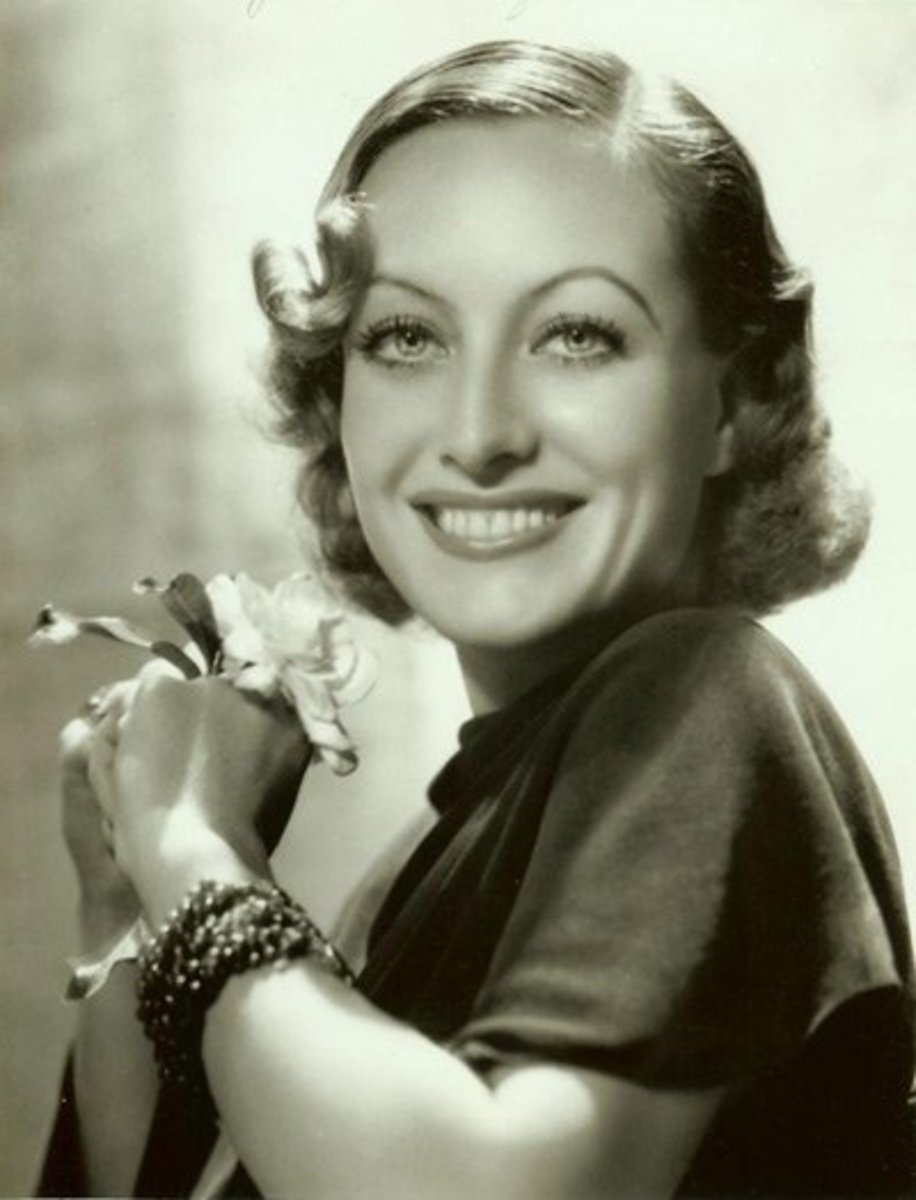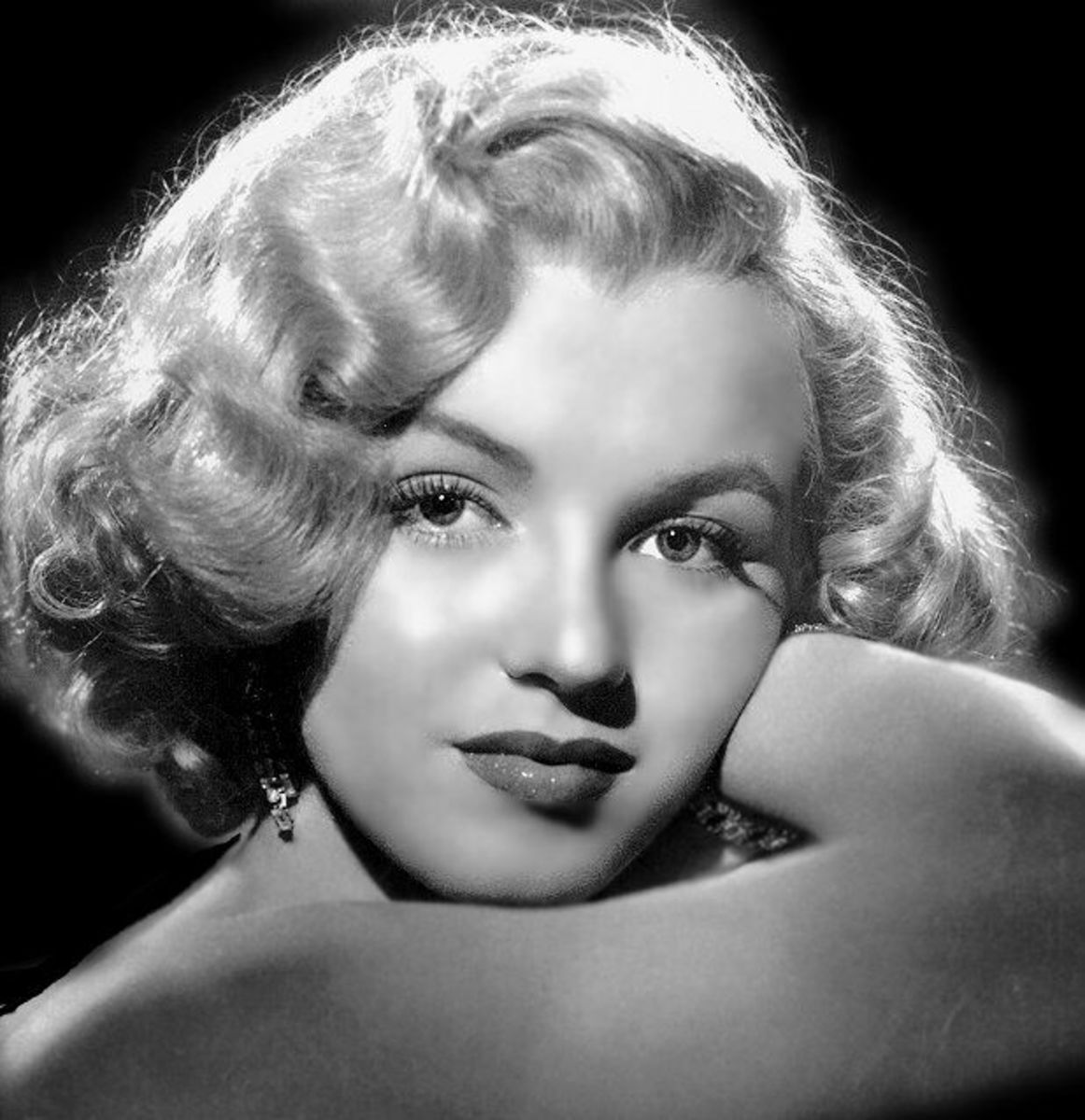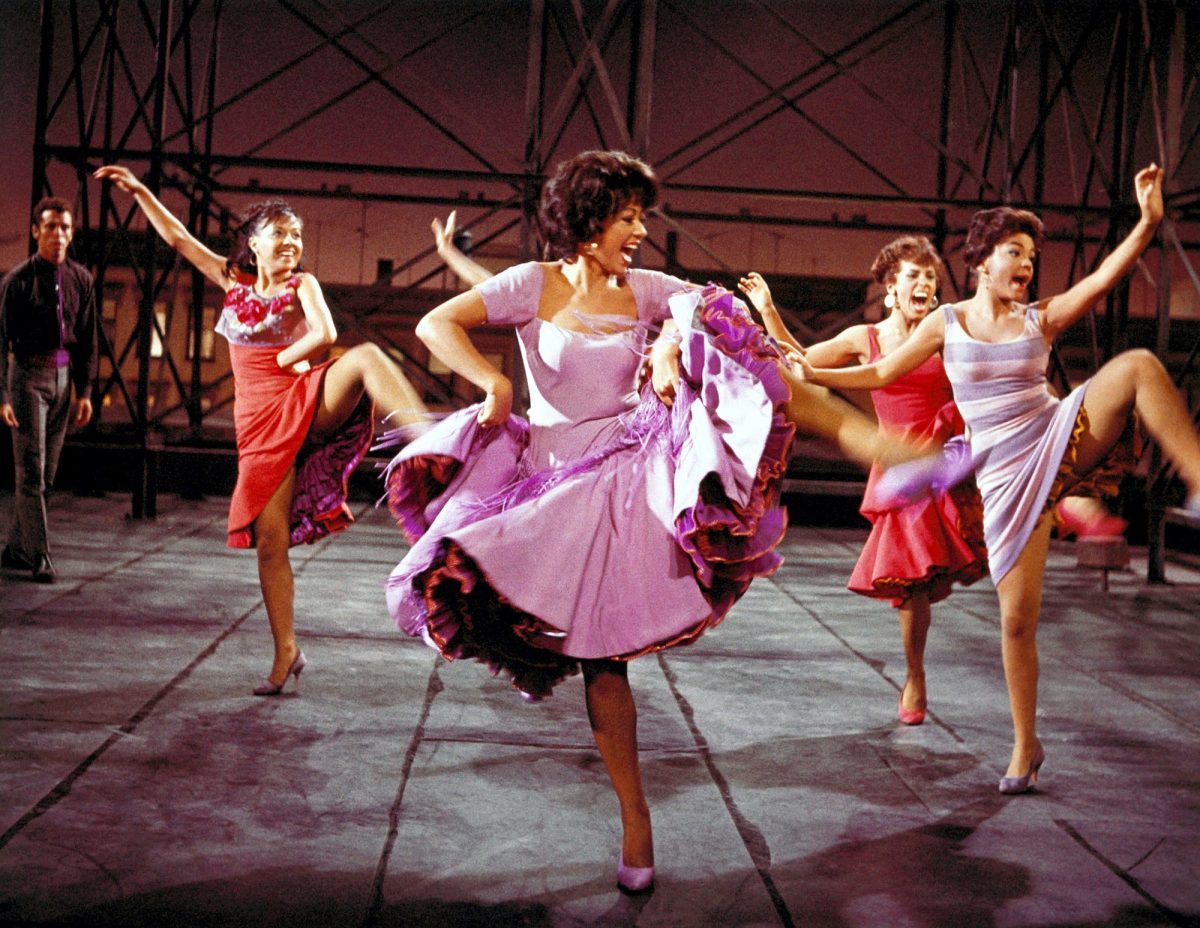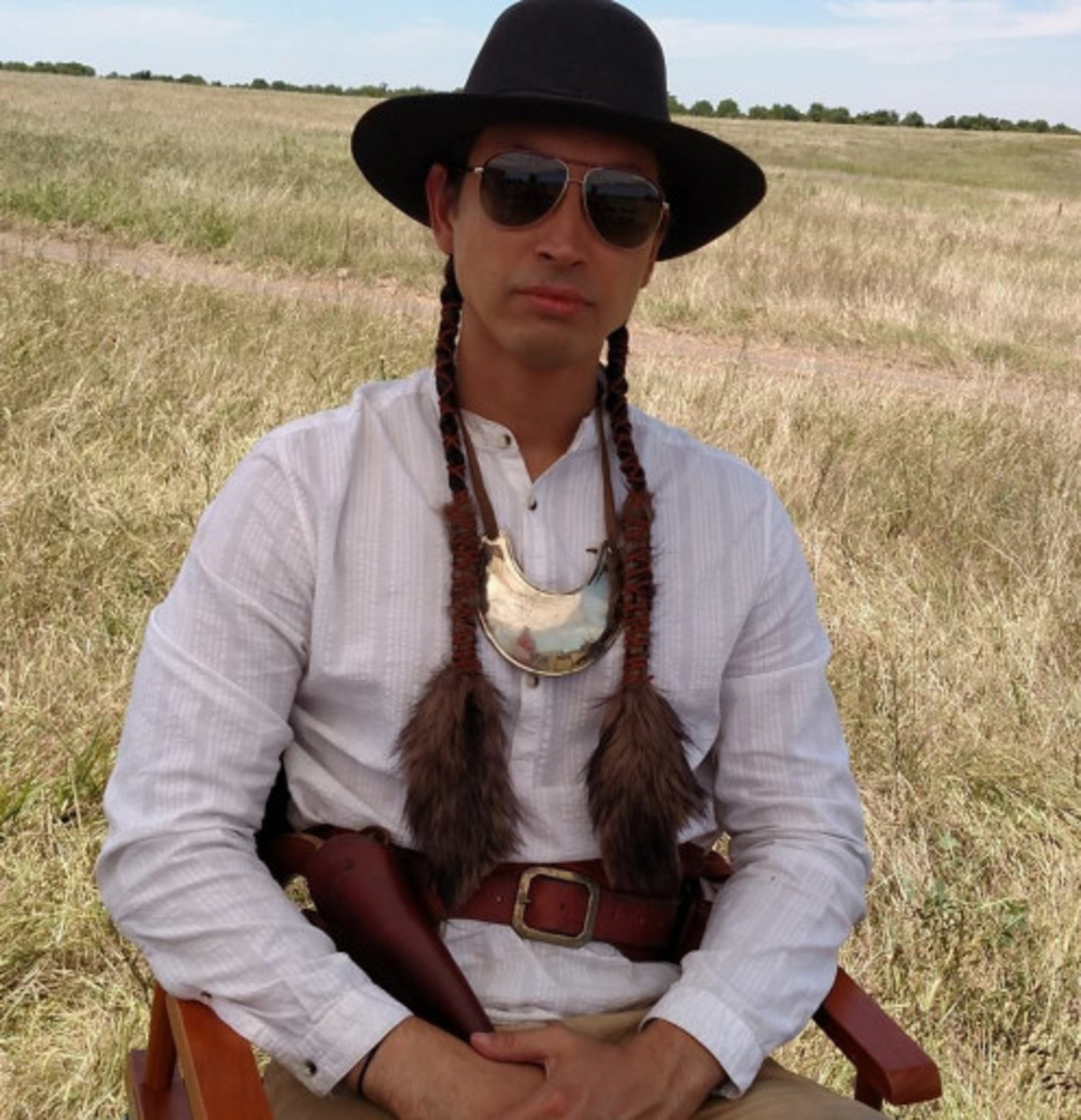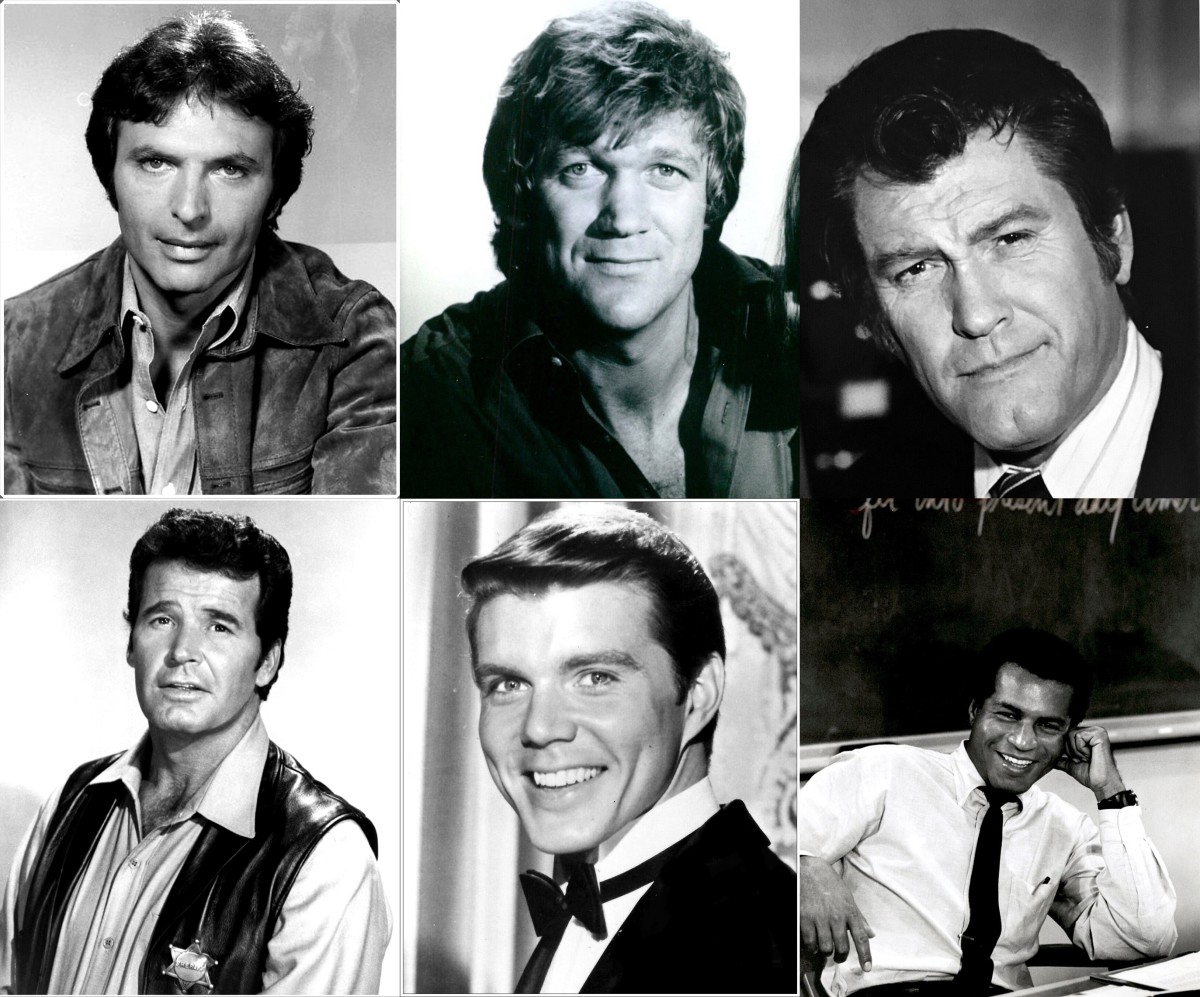Charles Laughton, Genius of the Stage and Screen
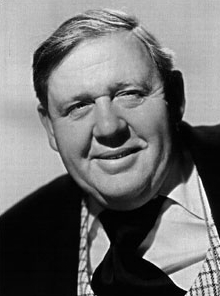
Charles Laughton
Charles Laughton was a multi-talented English stage and film actor who became an American citizen in 1950. After beginning his career at the outset of Talkies, Laughton showed a keen and serious interest in the pioneering possibilities of film, and later other new media such as radio and TV. He established a formidable reputation in Hollywood, and demonstrated that quality work could be made available to and appreciated by a mass audience.
As a magnificent actor, Laughton was responsible for some of the greatest characterisations ever seen on stage or screen and he is best known for his larger-than-life historical and literary characters such as Captain Bligh in 'Mutiny on the Bounty' and Quasimodo
in 'The Hunchback of Notre Dame'.
He was also a screenwriter and a producer and in 1955 he directed one of the masterpieces of American cinema, the brilliant 'The Night of the Hunter'. He was nominated three times for The Best Actor Academy Award and he won it once in 1933 for the title role in 'The Private Life of Henry VIII', the first English actor to win the award.
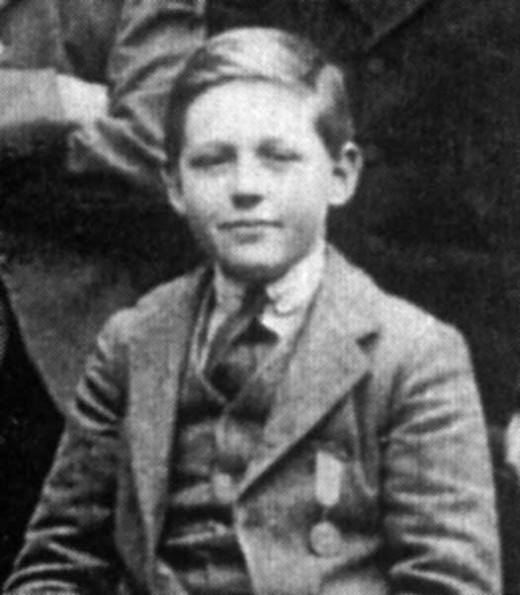
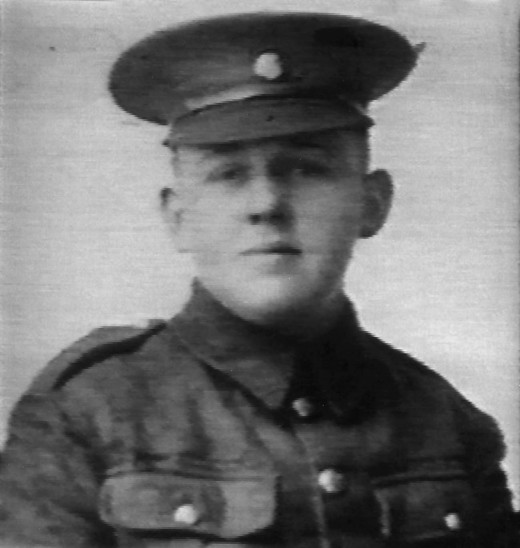
Early Years
Charles Laughton was born on July 1, 1899, in Scarborough on the north-east coast of England. He was the eldest of three sons all born at the Victoria Hotel, Scarborough, where their parents were the proprietors in a family business, which had been started by Charles's paternal grandfather.
Charles had a very British education and officer training at Stonyhurst College, a Jesuit public school, where, at the age of 14 he had his first taste of acting in school productions. After service during WWI (during which he became a casualty of mustard gas) he started work in the family hotel business, and participated in amateur theater in Scarborough.
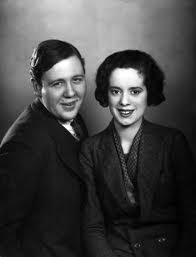
He entered London's Royal Academy of Dramatic Art in 1924 and in his second year there, he received the Bancroft Gold Medal as the finest actor the Academy had produced during the year. With his self-confidence thus boosted he became a full time actor and made his first professional stage appearance in April, 1926 at the Barnes Theatre in the comedy 'The Government Inspector'.
The following year, he made many appearances in London's West End and established a reputation for high quality character acting. Whilst appearing in 'Mr.Prohack' in London he met his future wife, Elsa Lanchester, and the couple married in 1929.
Bright Stars of Hollywood
- Vivien Leigh, English Southern Belle
She struggled with alcoholism and mental illness most of her life, was a heavy smoker, and died of tuberculosis at the young age of 53. She only made 20 films. Yet she won 2 Best Actress Awards playing... - Humphrey Bogart, Tough Guy with a Soft Center
Humphrey Bogart has become one of the great legends of Hollywood. He made a number of movies which have become classics and many of the characters he created such as Rick Blaine and Duke Mantee have become an... - John Gilbert, The Star Who Exploded Without Trace
John Gilbert was one of the very early Hollywood meteors. His rise was sudden and his decline even more dramatic. His career was very similar in many ways to that of Errol Flynn - dramatic success followed by... - Clark Gable The King of Hollywood
"His ears are too big and he looks like an ape." So said Warner Bros. executive Darryl F. Zanuck about Clark Gable after a screen test. Some ape. Clark Gable was to become an Academy Award-winning American... - Rita Hayworth, Hollywood Love Goddess
She became known to the world as Rita Hayworth, one of the most glamorous actresses in cinema history, but she was much more than a beautiful face. Rita was an exceptionally talented dancer, and her...
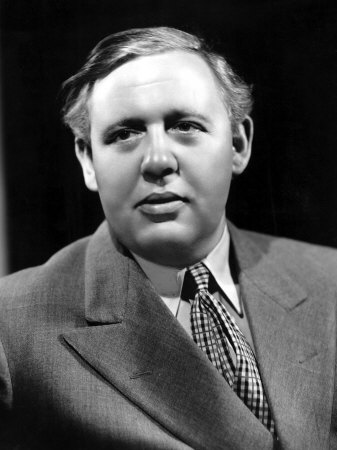
Laughton's film career commenced in England in parallel to his burgeoning career on the London stage. In 1928 he had small parts in three silent comedy shorts which starred his future wife and which had been specially written for her by H. G. Wells. The following year he made a brief appearance in another silent film 'Piccadilly' with Anna May Wong and he appeared with Elsa Lanchester again in a "film revue", called 'Comets' in 1930. Also in 1930 he starred in the early British Talkie, 'Wolves' with Dorothy Gish and then in 1931 he appeared in 'Down River'.
He continued adding to his growing theatrical reputation in such plays as 'Alibi' when he became the first actor to portray Hercule Poirot, and 'Payment Deferred' in 1931 in the role of William Marble. It was this role he was hired to re-create for the New York stage and in September 1931 he and Elsa sailed to the United States. It was the first of many such trips and over the next 19 years they travelled regularly between California, New York and England.
Laughton's New York stage debut in 1931 caused an immediate stir and launched his Hollywood career. His first Hollywood film was 'The Old Dark House' in 1932 with Boris Karloff and in the same prolific year he appeared in 'The Devil and the Deep' with Tallulah Bankhead, Gary Cooper and Cary Grant, then as Nero in Cecil B. DeMille's 'The Sign of the Cross'. That first Hollywood visit also produced other memorable performances such as in 'Payment Deferred', again repeating his stage role, 'Island of Lost Souls', playing a mad vivisectionist, and a small part in 'If I Had a Million' directed by Ernst Lubitsch.
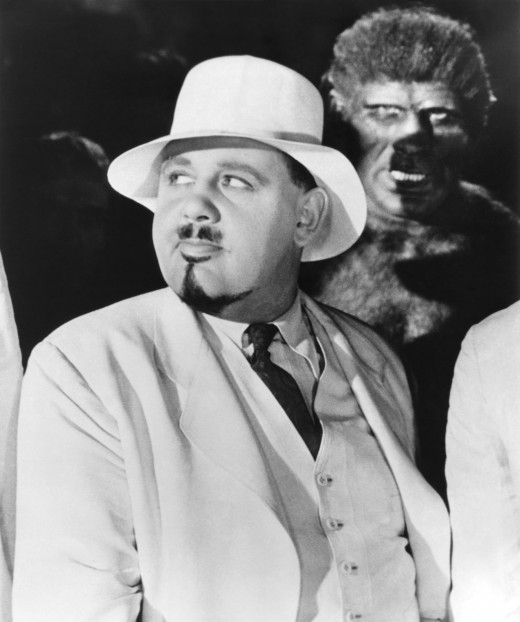
Henry VIII
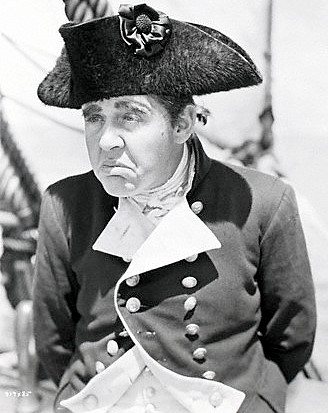
His trip to America was a great success and on his return to London with his reputation enhanced, Charles played in four Shakespearean plays at the Old Vic, 'Macbeth' 'Henry VIII', 'Measure for Measure' and 'The Tempest'.
Also in 1933 he began his fruitful collaboration with film director Alexander Korda with 'The Private Life of Henry VIII' for which Laughton won an Academy Award for Best Actor and which made him a major international star.
He then concentrated his formidable talents on the cinema and returned to Hollywood to appear in 'White Woman' in 1933 followed by 'The Barretts of Wimpole Street' in 1934 as Norma Shearer's father, and in 1935 'Les Misérables' and, memorably, 'Mutiny on the Bounty' as Lieutenant William Bligh, one of his most famous screen roles co-starring with Clark Gable as Fletcher Christian.
Charles's career continued with great success for the rest of the decade, alternating between England with 'Rembrandt ' in 1936 and 'I Claudius' in 1937 and America with his sensitive and intensely moving performance as 'The Hunchback of Notre Dame' in 1939.
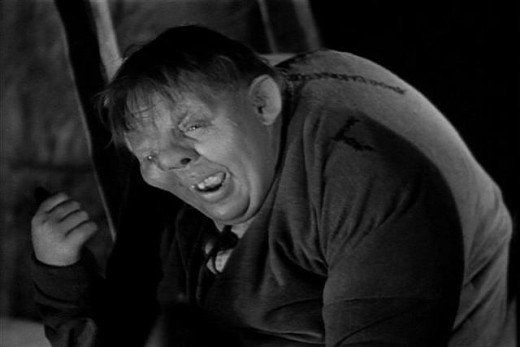
The Hunchback of Notre Dame - The Trailer
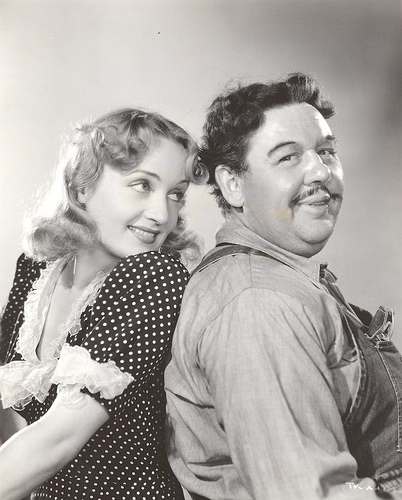
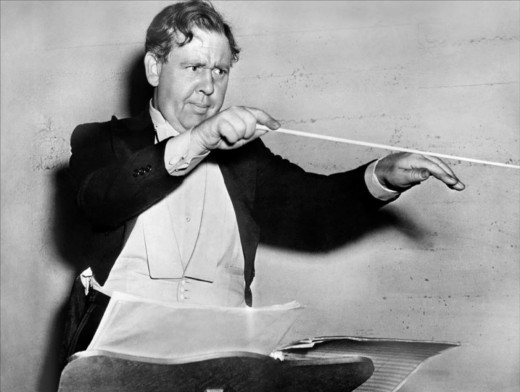
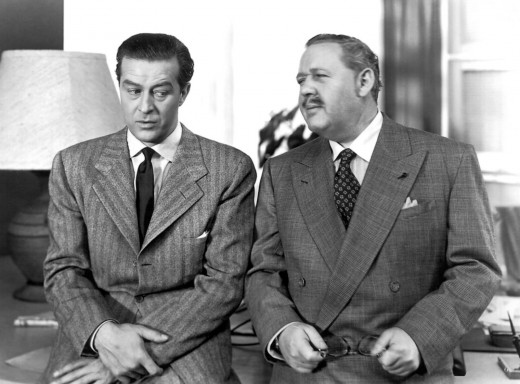
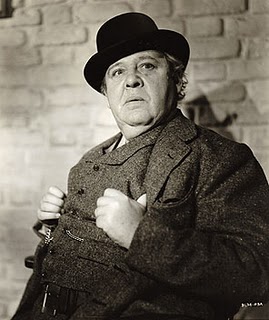
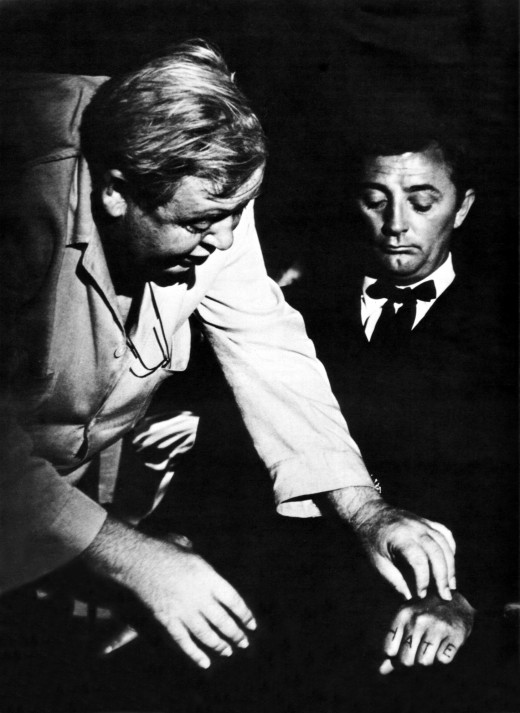
Turning Point
1939 marked a turning point in Laughton's career and after that date there is an overall slight reduction in quality from the wonderful classic roles of the 1930's. In the 1940's he was often put in roles different from the historical characters he had so wonderfully brought to life, which led to variable and often disappointing results.
Thus he portrayed an Italian vineyard owner in 'They Knew What They Wanted' in 1940, a South Seas patriarch in 'The Tuttles of Tahiti' in 1942, a butler in 'Forever and a Day' in 1943 and an Australian bar-owner in 'The Man from Down Under' in the same year.There were some brilliant performaces as well, such as the schoolmaster in 'This Land is Mine' in 1943 and in the following year, the hen-pecked husband in 'The Suspect'. He was brilliant as the orchestra conductor in 'Tales of Manhattan' in 1942, and in another historical action film, 'Captain Kidd' in 1945 and again playing the same title role in 1952's 'Abbott and Costello Meet Captain Kidd'.
Laughton showed he could play comedy in two movies he made with Deanna Durbin, 'It Started with Eve' in 1941 and 'Because of Him' in 1946. He also demonstrated his ability in playing thrillers as well with Paramount’s 'The Big Clock' in 1948 and MGM’s 'The Bribe' the following year.
He returned to filmmaking in England in 1954 with the wonderfully moving and hilarious 'Hobson's Choice' directed by David Lean and then back to Hollywood in 1957 to appear in Billy Wilder’s 'Witness for the Prosecution' with Marlene Dietrich and Tyrone Power for which he received another Academy Award nomination.
Seeking New Boundaries
In the latter part of his career, Laughton appeared to reach out to try to seek the extent of his talents. In 1947 he collaborated with author Bertolt Brecht in bringing Brecht’s The Life of Galileo to the stage and in 1953 he staged 'John Brown’s Body', an epic poem by Stephen Vincent Benet starring Tyrone Power. He directed on Broadway 'The Caine-Mutiny Court Martial' starring Henry Fonda, which ran for 412 performances and then in 1955 his sole foray into movie direction was the magnificent 'The Night of the Hunter', one of the most powerful films of the twentieth century. It starred Robert Mitchum, who said he considered Laughton to be the best director he ever worked with.
Although he is best known for his movies, Laughton had a second successful career — onstage oral readings of works of great writers. His readings started as entertainment for hospitalized serviceman in World War II as part of his contribution to the war effort, and later became public performances which took him back and forth across the nation. He would sit alone on the stage and reach into a cloth bag of books to select excepts from such favorites as Dickens, Thurber, Thomas Wolfe, Shakespeare and, often, the Bible.
Hollywood's Golden Age
- Hollywood's Golden Age
Unique profile and information site about the actors, the actresses, the directors and the great films they made in Hollywood's Golden Age.
The End
One of his final projects was in 1960 - a critically acclaimed one-woman show he created for his wife called 'Elsa Lanchester – Herself'.Towards the end of his life, Laughton continued to make movies. In 'Under Ten Flags' in 1960 he played a British admiral and in Spartacus in the same year he appeared, memorably, as a cunning Roman senator. His last movie was 'Advise and Consent' in 1962, for which he received favorable reviews for his performance as a U.S. Senator.
Charles Laughton died on December 15, 1962, after a year long battle against bone cancer. His was an all round artistic talent, a completely unique creative force. He could portray wickedness and the audience still loved him, and he could equally master the role of underdog or fool. He was equally at home on stage or on screen, a natural acting genius. He is not forgotten.
Make Money Online! Join Hub Pages for Free
- Getting Started Archive - HubPages Learning Center
Find all about Hub Pages - its a great way of enjoyably making money online.
